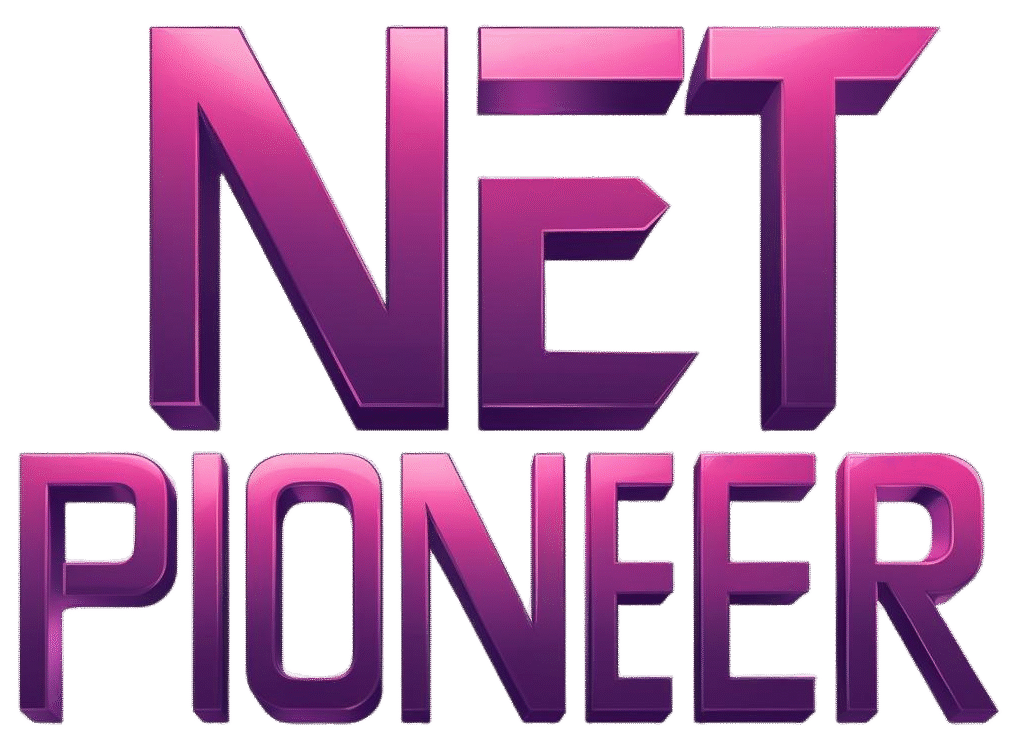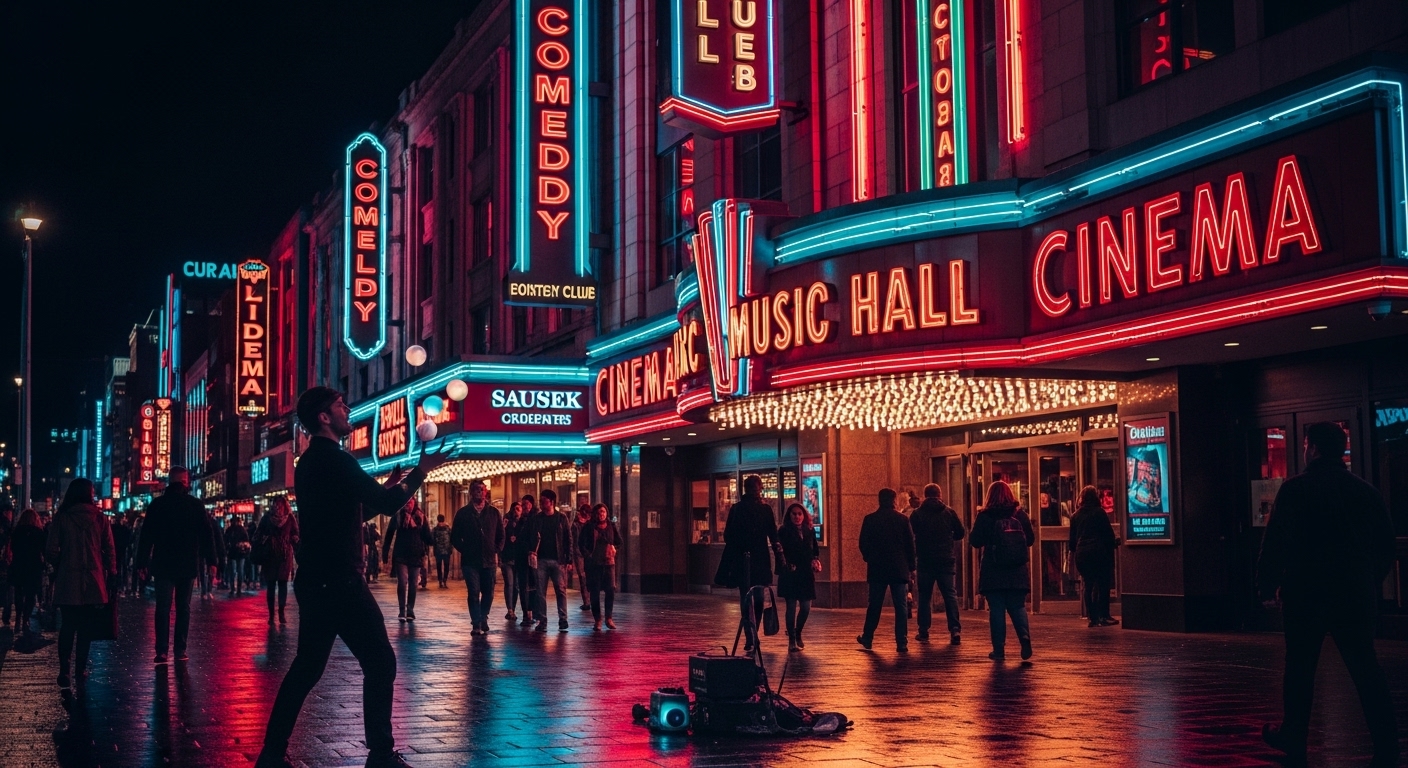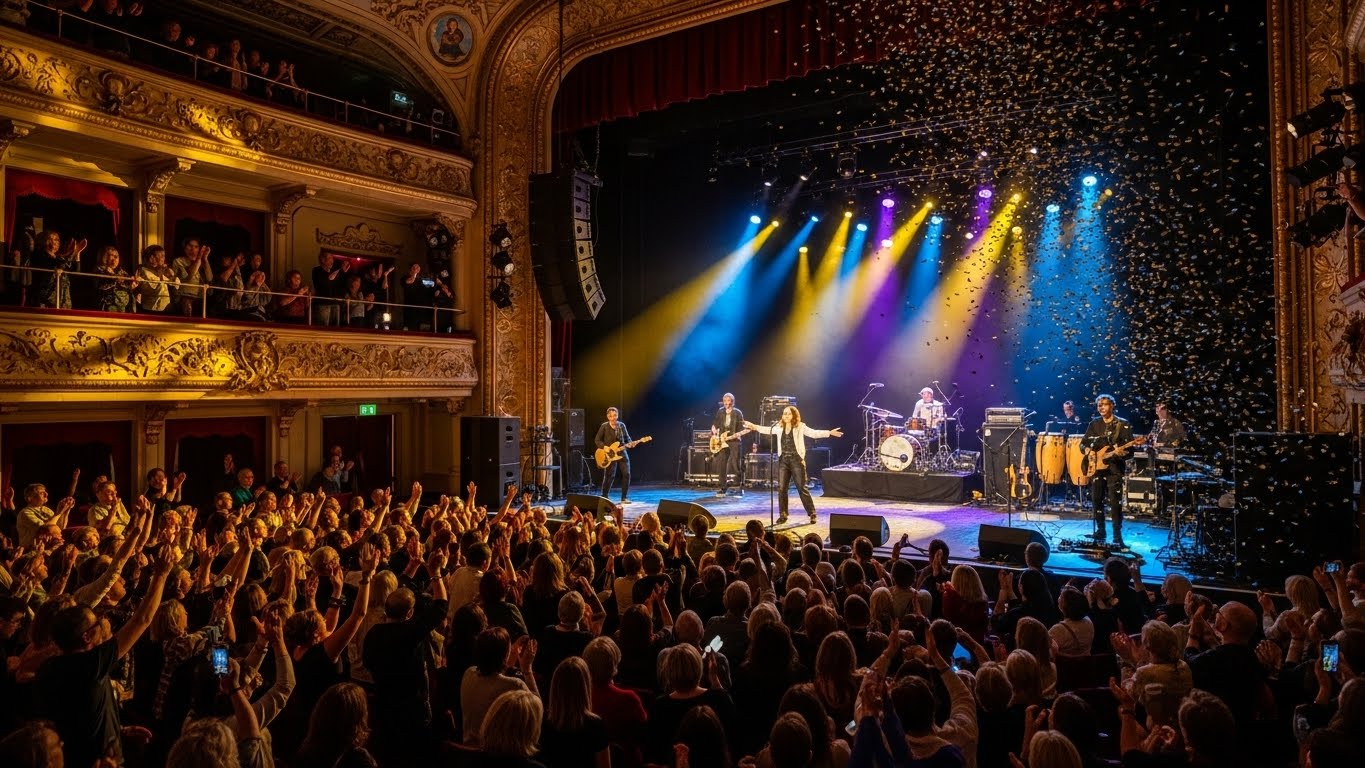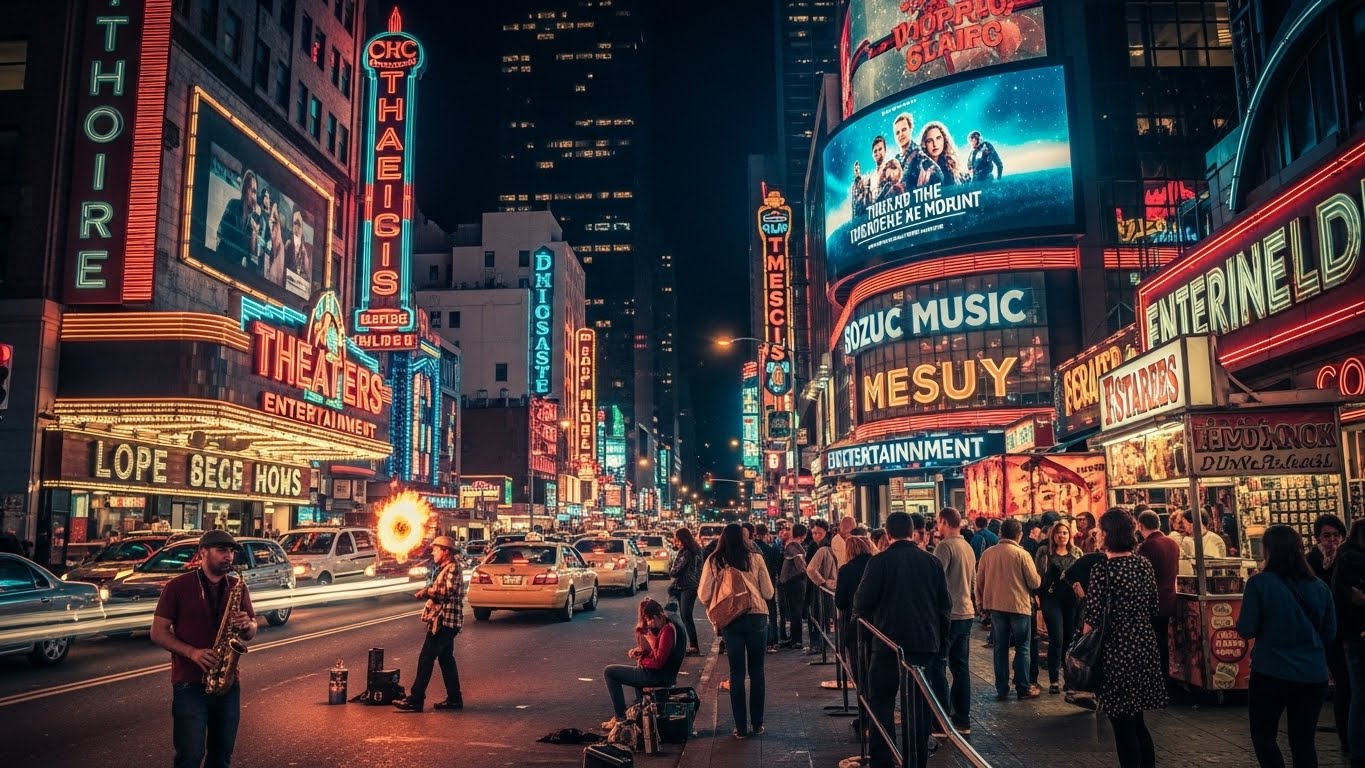Entertainment has always been an integral part of human life, providing moments of joy, relaxation, and connection. Over the years, the ways in which we engage with entertainment have evolved, influenced by technological advances, changing cultural trends, and shifts in consumer preferences. Today, in the digital age, entertainment is no longer confined to traditional mediums like television, radio, or cinema. Instead, it’s a multi-faceted, on-demand experience that’s more personalized, interactive, and immersive than ever before. This blog post explores how technology has reshaped the entertainment landscape and what the future holds.
The Digital Revolution: Shifting the Entertainment Paradigm
The dawn of the digital age marked a pivotal moment in entertainment history. In just a few decades, the transition from physical media (like VHS tapes, CDs, and DVDs) to digital streaming has fundamentally altered how we access and consume entertainment. No longer do we have to rely on scheduled broadcasts or physical stores; now, we can stream movies, shows, music, and even video games at the touch of a button.
Platforms like Netflix, Spotify, YouTube, and Apple Music have become household names, offering endless libraries of content that can be accessed on-demand. With streaming, entertainment is no longer restricted to a particular time slot or geographic location. The traditional model of watching shows at a set time on cable TV has given way to binge-watching, where viewers can consume entire seasons of shows in one sitting. This shift has not only transformed viewing habits but also changed how entertainment is produced. The advent of streaming services has paved the way for shorter seasons, new content formats, and a focus on diverse storytelling.
Social Media: A New Frontier in Entertainment
One of the most significant disruptions in entertainment in the digital age is the rise of social media. Platforms like Instagram, TikTok, Twitter, and Facebook have redefined what it means to be an entertainer, enabling anyone with a phone and creativity to become a content creator. These platforms have allowed for a democratization of entertainment, where ordinary individuals, rather than established studios or networks, can gain massive followings and make a career out of creating content.
Social media has also blurred the lines between creator and consumer. Users are no longer passive viewers; they’re active participants, engaging with content, sharing opinions, and even creating their own versions of viral trends. TikTok, in particular, has exemplified this shift by allowing anyone to create short, creative videos that can go viral overnight, turning everyday users into stars. This has given rise to influencers who are now major players in the entertainment industry, shaping trends and collaborating with brands to reach millions.
The constant flow of updates and content also keeps users engaged, making entertainment not just an occasional experience, but an ongoing one. Social media has introduced an interactive element to entertainment that was previously absent in traditional formats like television and film.
The Rise of Gaming: Entertainment Meets Technology
Video games have long been a staple of entertainment, but in the past decade, they’ve emerged as one of the most dominant forces in the industry. Gaming has evolved from a niche hobby to a global phenomenon, with millions of people worldwide participating in both casual and competitive gaming.
The development of online multiplayer games, virtual worlds, and mobile gaming has transformed how people interact with video games. Games like Fortnite, League of Legends, and Minecraft have created communities of players who don’t just play—they connect, socialize, and compete in expansive digital environments. This shift has turned gaming from a solitary activity into a social one, with multiplayer experiences and live-streaming platforms like Twitch allowing players to engage with friends, fans, and fellow enthusiasts from around the globe.
Esports, competitive gaming, has also surged in popularity, with professional players and teams earning sponsorships, participating in tournaments, and even streaming their matches. The rise of virtual reality (VR) and augmented reality (AR) is poised to further revolutionize the gaming world, offering more immersive experiences that allow players to step inside their games and interact with virtual environments in real time.
The Impact of Artificial Intelligence and Personalization
One of the most exciting aspects of digital entertainment today is the role artificial intelligence (AI) plays in shaping the user experience. AI algorithms are now being used to recommend content based on our preferences, ensuring that we always have something new to watch, listen to, or play. Streaming services like Netflix and Spotify use AI to curate personalized recommendations, helping us discover content we might not have found otherwise.
Personalization is key to the future of entertainment. AI is not only changing how we consume media but also how it is created. In the film industry, AI is being used for everything from scriptwriting assistance to special effects generation. AI-driven tools help filmmakers streamline the production process and create more innovative and visually stunning films. In music, AI has begun to compose songs and create sounds that mimic the styles of famous artists, offering new possibilities for musicians and composers.
In the gaming industry, AI is improving non-player character (NPC) behavior, creating more lifelike and responsive in-game characters. These advances contribute to a more engaging, dynamic experience, where the gameplay adapts to the player’s actions, making every session unique.
The Evolution of Live Entertainment: Virtual Concerts and Performances
While digital entertainment often happens in the comfort of our homes, live entertainment has also found new avenues in the digital age. The global pandemic accelerated the trend of virtual events, where concerts, theater productions, and sports events were broadcasted online to reach audiences who could no longer attend in person.
Virtual concerts have become a major trend, with artists like Travis Scott and Billie Eilish holding massive, live-streamed performances on platforms like Fortnite and YouTube. These events have allowed performers to connect with global audiences in real-time, offering an immersive, interactive experience that blends entertainment with gaming. Fans can attend concerts, explore virtual worlds, and interact with others in ways that go beyond traditional live performances.
Moreover, virtual reality (VR) is beginning to play a role in live entertainment as well. VR concerts and immersive theater experiences are offering audiences a chance to experience performances in entirely new ways, making them feel as though they are part of the action.
The Future of Entertainment: An Immersive, Interactive Experience
Looking ahead, the future of entertainment is incredibly exciting. With advancements in virtual reality, augmented reality, AI, and blockchain technology, the entertainment industry is on the cusp of a new era. We are moving toward experiences that blend the digital and physical worlds, where audiences can interact with the content they consume in real-time.
Imagine watching a movie where you can alter the storyline or participate in the action, or playing a video game where the environment around you reacts to your real-world movements. As these technologies develop, the line between what is “real” and what is “virtual” will continue to blur, creating a truly immersive experience that will change the way we view entertainment forever.
Additionally, with the rise of decentralized platforms and blockchain, creators may find new ways to monetize their content directly, bypassing traditional distribution models and giving them greater control over their work. This shift could lead to a more democratized entertainment industry, where creators of all sizes and backgrounds have the opportunity to reach global audiences without intermediaries.
Conclusion: A New Era for Entertainment
The digital age has transformed the entertainment landscape in ways that were once unimaginable. From on-demand streaming and social media-driven content creation to immersive gaming experiences and AI-powered recommendations, entertainment is no longer a passive activity but an interactive, personalized, and evolving experience.
As technology continues to advance, we can expect even more groundbreaking innovations that will redefine how we engage with media. The future of entertainment will be shaped by our desire for more engaging, immersive, and interactive experiences, making it an exciting time for both creators and audiences alike.



